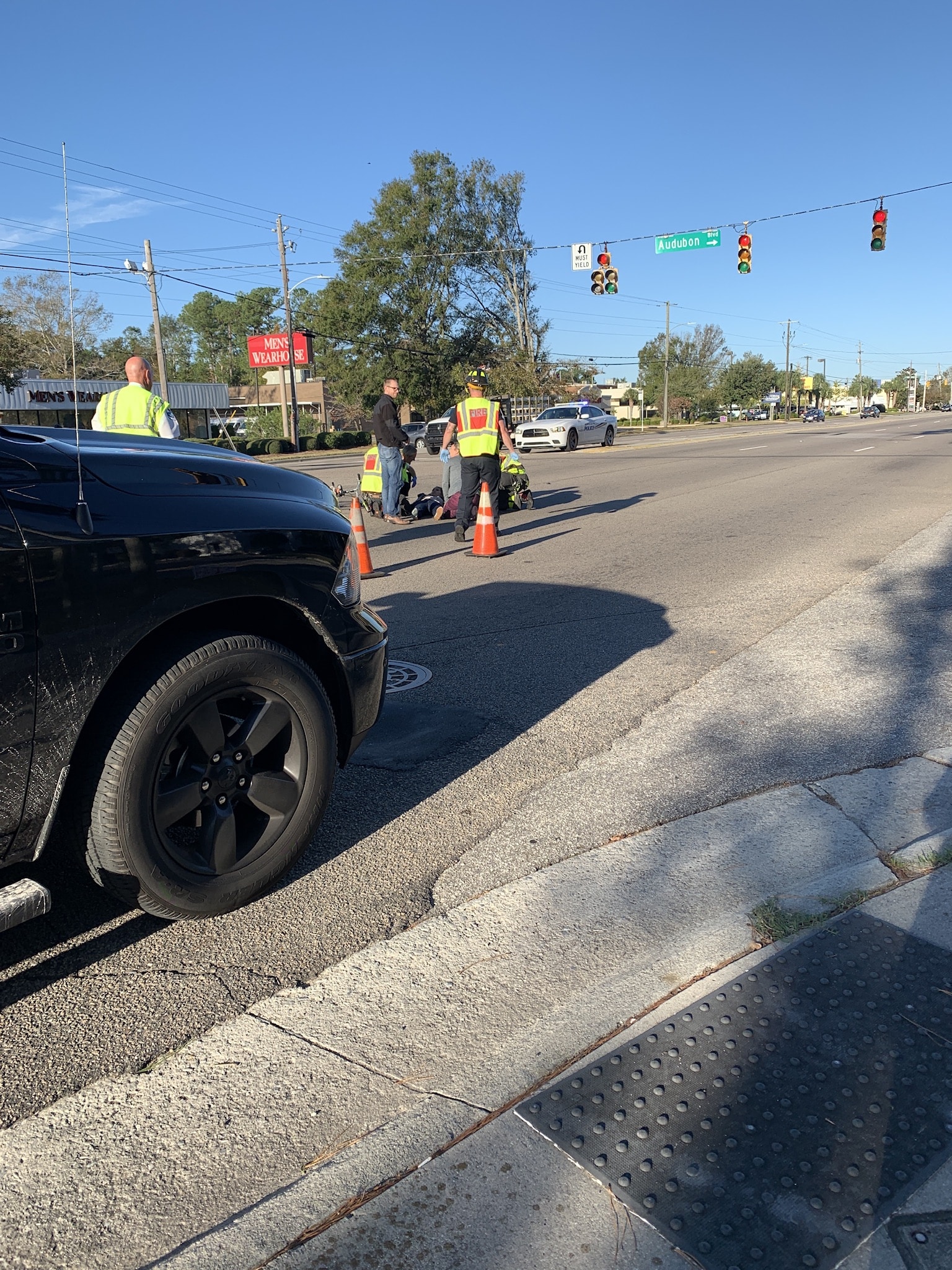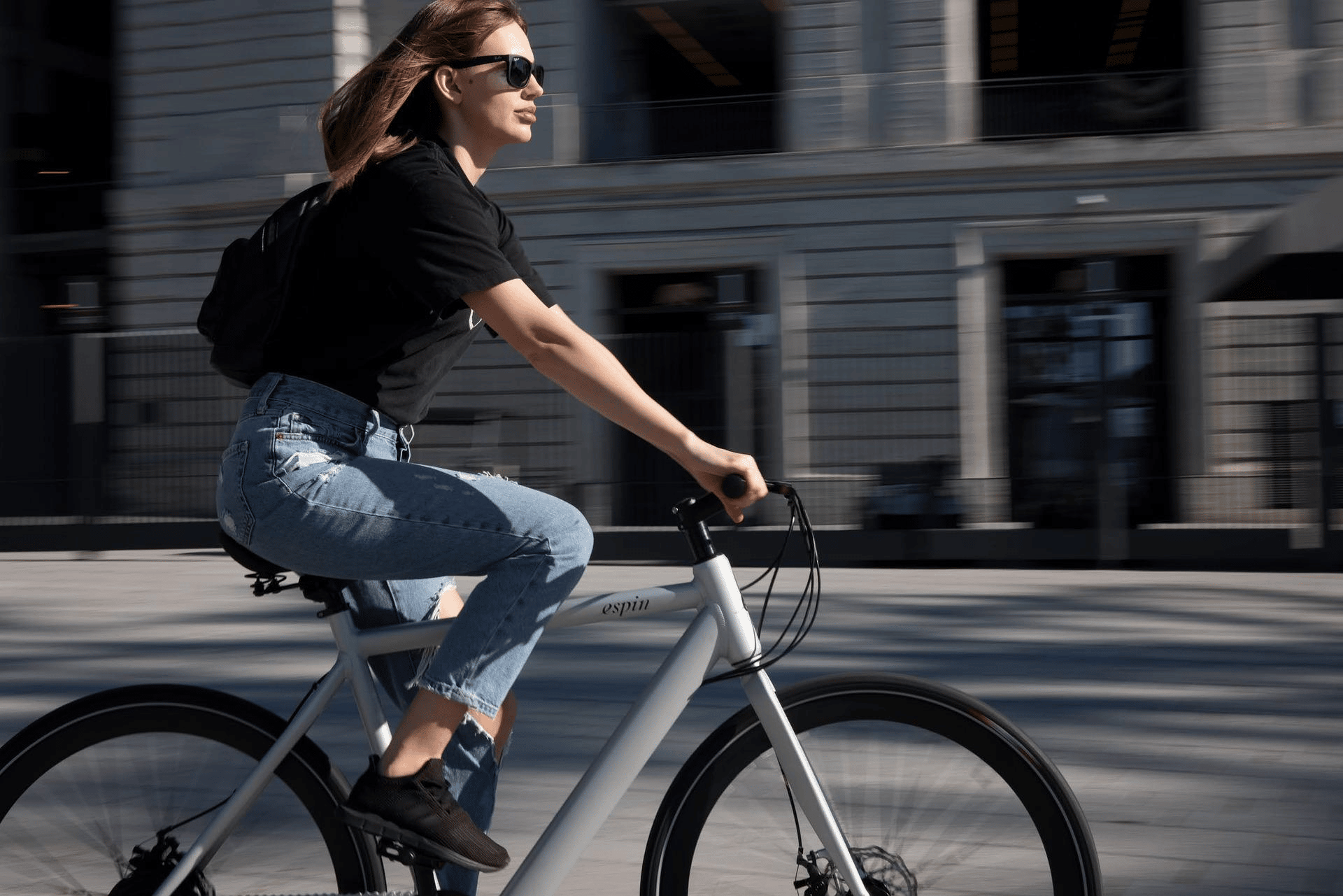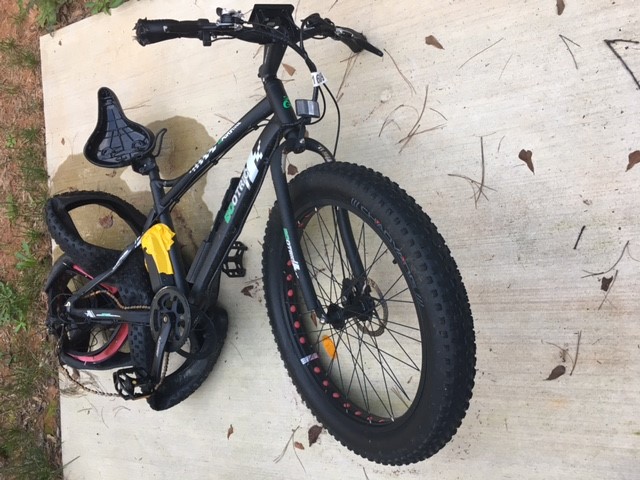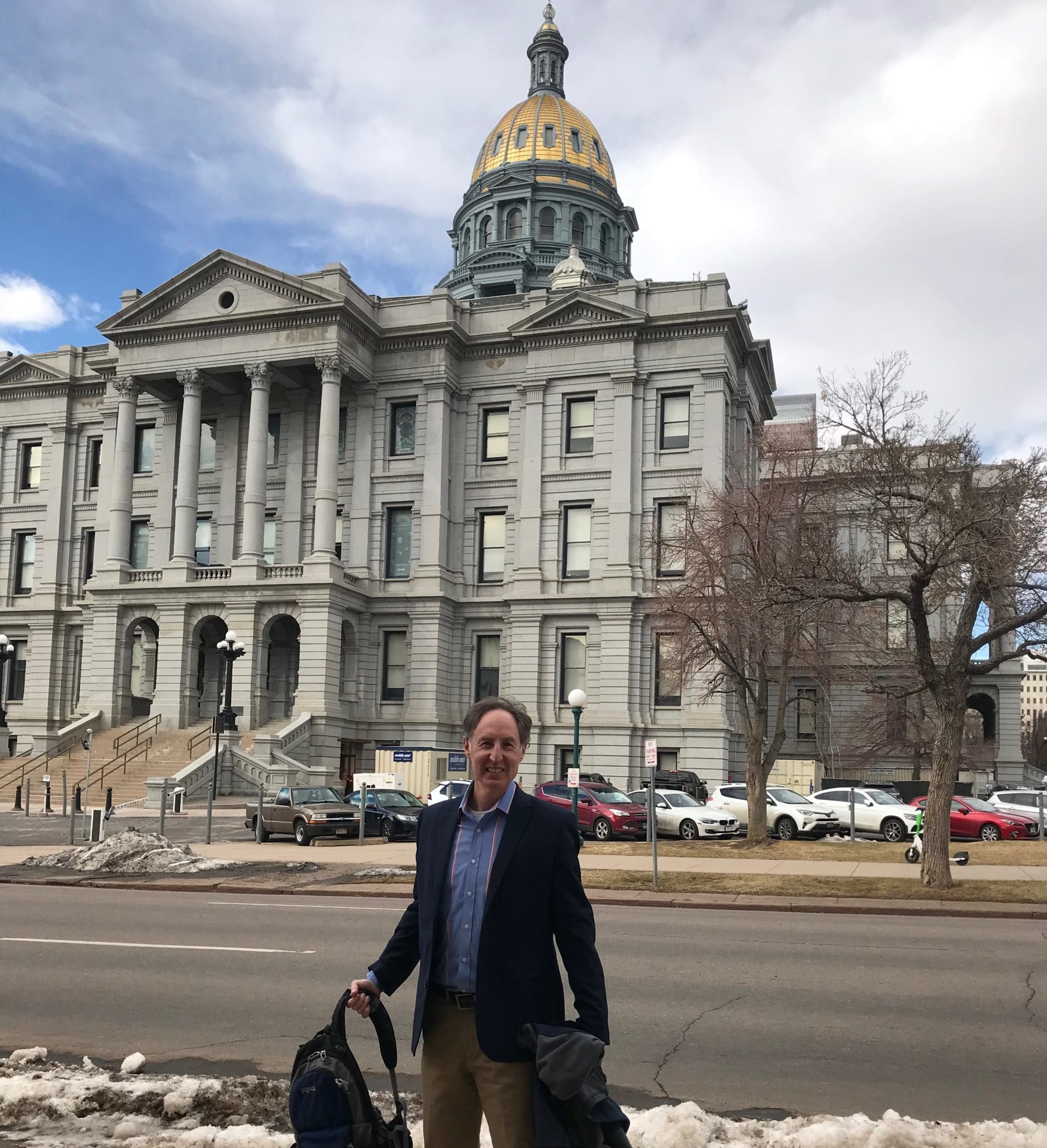Earlier this year, our client David Spranger was riding his bike to work at 5:00 a.m. His bicycle was covered in lights and reflective gear, and he was wearing a bright yellow rain jacket. David was seriously injured when a driver in a minivan struck him from behind. David’s injuries included fractured bones and a traumatic brain injury.
The driver of the minivan stopped briefly, according to news reports, then drove off. He was arrested three days later after police received a Crime Stoppers tip.
Last week, that driver, Mr. Jose Luis Rivera, pled guilty to felony hit and run. Here is what David told the court. David’s statement is reprinted with his permission:
Today, in court, Mr. Rivera pled guilty to Felony Hit and Run and was sentenced to 30 days in prison with a work release, so he won’t lose his job. He will get 60 months’ probation and has been ordered to pay me restitution, whatever that means. The Judge allowed me as the victim to speak in court and this is what I said:
“For many years, I have used a bicycle as my main form of transportation. I commute from my home in Four Seasons Neighborhood, where I have lived since 1986, to where I work in Uptown Charlotte. I have safely used Central Avenue as my main route for those journeys.
Mr. Rivera hit me smack in the center of my rear wheel. He made no attempt to change lanes when there was a completely clear lane. After reviewing video of the accident, police officers estimated his speed to be around 55 MPH in this 35 MPH zone and estimated my speed to be about 10 MPH.
I was dressed in a bright and reflective rain coat and my bicycle was covered in lights and reflective material. He was either not looking at all or he was intoxicated. Only he knows the truth of that.
What is well known and undeniable is that he left me for dead in the middle of Central Avenue at 5 a.m. on a Friday morning.
I was in intensive care unit for a week for some major injuries that I will carry for the rest of my life. I suffered very extreme seizures while in the hospital that caused a lockdown of ICU. I have a Traumatic Brain Injury with all sorts of new symptoms cropping up in new ways for me. I have a metal rod in my left leg that is doing the work of the broken bones, and I am now told the implant may WEAR OUT and need to be replaced before my bones have healed. My wife may never get over the extreme PTSD that she is suffering from this incident.
My own life has changed in so many ways I cannot keep count any longer. I was out of work for over four months of my life. Most of that time, I was confined to a hospital bed and wheelchair in my living room. During this time, I had to use a bucket for my daily waste needs. I had to rely on my wife for all my needs, including emptying that waste bucket. Essentially I was imprisoned while Mr. Rivera has been free to move about at will.
I have health insurance through my employer. This health insurance has covered much of the costs I would have incurred thus far, but far from all of them. However, because Mr. Rivera is insured, this insurance company has hired a third party negotiator to get their money back from me. Now, while my medical expenses are referred to in percentages of a million dollars, his known insurance policy limits are $50k. Who pays the rest?
While I have learned to walk and do many activities that I have enjoyed in the past, it is not without pain. I have not been able to ride my bike since this crash, something that was a daily part of my life for many years. Mr. Rivera has been free to move about at will since running me down. However, his home address is so very close to ours that my wife has not felt comfortable enough to even frequent the stores and shops nearby our home. She has had to travel out of her way JUST TO AVOID the possibility of seeing Mr. Rivera.
My wife and I, on Monday of this week, celebrated our 30th anniversary. Previous to the crash, Laura had scrimped enough away to book a surprise vacation to Hawaii for our 30th. After the crash, unsure of what the future holds, she had to cancel and get as much of a refund as possible. We stayed home.
He hit me very hard. I was thrown some 70 or so feet before hitting the road. The visibly physical injuries are unlikely to be less severe had he stopped to help. However, it is very likely that had Mr. Rivera stopped and called 911 immediately, my brain-related injuries could have been much less severe. Perhaps my ability to forgive may be in better shape as well. When I am truthful with my own inner core, I know that I do have the capacity to forgive you, Mr. Rivera, IF sincere effort is made toward restitution.
What kind of restitution could be made to make up for this? I am not sure it is possible but real effort must be made.”
David is spot on, of course. As I reflect on David’s remarks and the light punishment that Mr. Rivera received, I believe it’s time that we take a hard look at stiffer punishments for hit and run cases. These light sentences do nothing to deter such a serious and callous crime. Motorists need to know they will face serious time behind bars if they drive off and leave an injured cyclist by the side of the road.
Now, let’s consider another common scenario – suppose a driver caused a bike-car crash because she was distracted by her smartphone but stopped and called 911. Under that scenario, it’s possible the driver would not face any criminal charges.
Why not, you ask? Here’s how Bike Law’s very own Bob Mionske explained it in his latest Velo News column, Legally Speaking:
[T]the prosecutor would have to prove ‘beyond a reasonable doubt’ that the driver behaved in a criminally or grossly negligent way. You probably think that operating a huge machine in a distracted manner is grossly negligent. I do too. But under most states’ criminal statutes, to be shown as ‘grossly negligent’ would require an extreme act like driving 90 mph through a school zone populated with children and hitting one of them. Short of egregious and shocking behavior, it is tough to get a conviction under the requirements of criminal driving statutes.
So how do we make sure drivers in those cases are held accountable under the law? One solution, according to Bob, is the enactment of Vulnerable Road User laws (VRU laws). He explains:
The term comes from Europe and it contemplates the fact that some road users are not surrounded in steel and safety glass, wearing seat belts, as motorists are. These ‘vulnerable users’ include cyclists…. Generally, VRU laws apply when a driver commits a driving infraction and a cyclist or other vulnerable road user is seriously injured or killed as a result. In other words, the driver faces a penalty more serious than a small fine, but less serious than criminal penalties.
VRU laws typically call for “enhanced fines (higher than the standard traffic violation), driver’s license suspension, jail time, completion of a traffic safety course, and community service,” according to the article.
Only a handful of states have VRU laws. North Carolina is not one of them. We need to change that. We need stiffer penalties for hit and runs, and we need VRU laws that give our courts more sanctions to impose from when motorists strike vulnerable road users like David, a cyclist who was horribly wronged even though he was doing everything right.
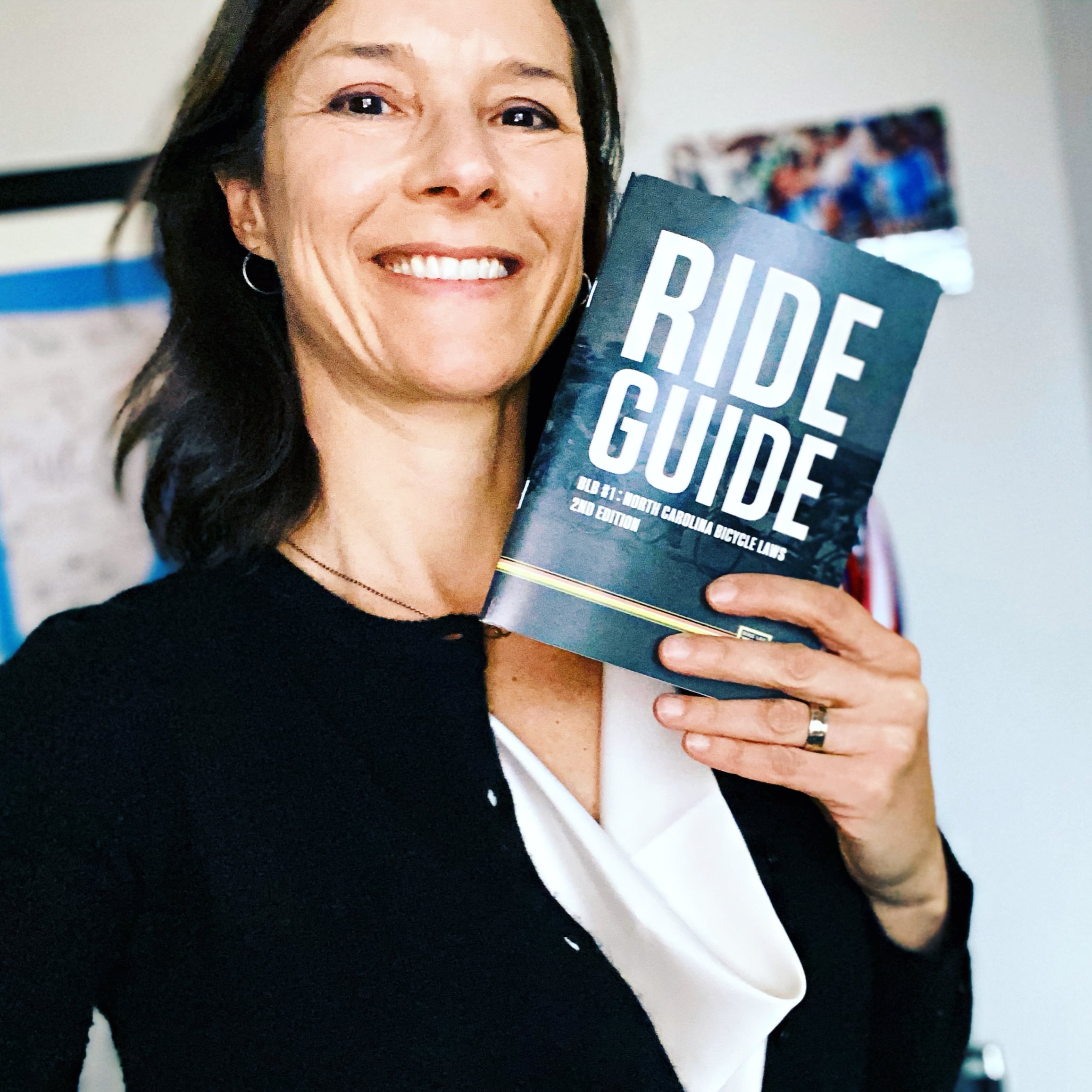
North Carolina lawyer and Bike Law founder, Ann Groninger, has advocated at the state level on behalf of bicyclists in North Carolina for over 15 years. Ann has offices in Charlotte and Durham and has helped bike accident clients in Asheville, Raleigh, Durham, Greenville, Wilmington, Fayetteville, and throughout the state. Read more about Ann on her bio page.







